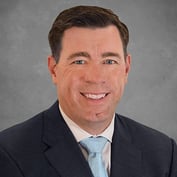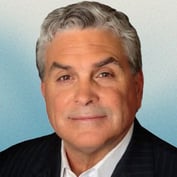What You Need to Know
- Carson Group and Vestwell launched a retirement plan advisory solution, Carson Complete 401(k), last week.
- Regulatory and market pressures are increasing the demand for small-business retirement plan services.
- There is a tremendous, unmet need for expert advisory support in this area, Hopkins and Vestwell CEO Aaron Schumm say.
Last week, Vestwell and Carson Group announced the launch of a retirement plan advisory solution called the Carson Complete 401(k), designed to help Carson Group advisors grow their small and mid-market 401(k) and 403(b) plan practices.
The new advisory program includes many of Vestwell’s technology capabilities, such as payroll integration and 3(16) fiduciary plan administration. For Carson-affiliated advisors, a core part of the solution is the home office 3(38) capability that dramatically simplifies the investment management process for fiduciary retirement plan clients.
At the time of the announcement, Jamie Hopkins, managing partner of wealth solutions for Carson Group, said the new 401(k) plan solution would complement the firm’s existing retirement specialists’ program, adding that the Vestwell partnership will provide advisors with the essential tools they need to rapidly grow their retirement plan practices.
With the support of Vestwell’s participant platform, Hopkins said, advisors would be able to deliver a “state-of-the-art experience” to their small-business owner clients and their employees.
This week, in an interview with ThinkAdvisor, Hopkins was joined by Vestwell founder and CEO Aaron Schumm to offer more detail about the small-business retirement plan solution, and to put the launch of the Carson Complete 401(k) into its broader context.
According to Hopkins and Schumm, the worlds of wealth management and workplace retirement plans are converging, such that wealth advisors who aren’t taking steps to support their business owner clients could struggle to hit growth targets and keep existing clients happy.
Regulatory and Market Tailwinds
According to Schumm and Hopkins, the passage of the original Setting Every Community Up for Retirement Enhancement (Secure) Act in 2019 and the recent adoption of the Secure 2.0 legislative package help explain the need for the new collaboration.
“The regulatory trade winds have built up some significant momentum behind the small-business retirement plan space, and the engagement we are seeing across the advisor community has grown substantially,” Schumm says. “Simply put, more advisors are asking their home offices and outside providers to support their desire to work with small-business owners in this way.”
This desire among advisor professionals, Schumm and Hopkins say, comes from the emerging understanding that there is a tremendous, unmet need for expert advisory support in this area. In fact, research shows that, as of early 2023, only about one in four small and midsize businesses offer employer-sponsored 401(k)s. Traditionally, the perception of excess cost and complexity prevented many small-business owners from setting up retirement plans for their employees, but the picture looks much different in 2023.
As Schumm and Hopkins point out, small-business owners who lack retirement plans for their employees are finding it increasingly difficult to compete for talent, and at the same time, much of the complexity of creating a plan has been reduced or eliminated. Another driving factor is the rapid expansion of state-based and city-based mandates that require most small and mid-market employers to offer retirement benefits to their workers.
While more employers are being required to offer plans, Schumm and Hopkins say, they also have more approaches and options from which to choose. For example, the Secure Act 2.0 package included the creation of a simplified “Starter 401(k)” designed to allow even the smallest business with the most limited resources offer a retirement benefit to employees. The legislation also offered new and expanded tax credits to incentivize small businesses to offer retirement plans.
“For all of these reasons, small-business clients are pushing their trusted advisors for access to 401(k)-style retirement plans for their own workers,” Schumm says. “Jamie and his team saw the need to put a solution in place that helps their advisors do just this, because they know how important this segment of the marketplace is going to be, now and in the future.”
Helping Advisors Help Their Clients
According to Hopkins, many advisors who have focused on wealth management now feel a need to be able to offer support with their clients’ employer-sponsored retirement plans, but they just don’t have the necessary expertise.








 January 17, 2023 at 09:48 PM
January 17, 2023 at 09:48 PM












 Copyright © 2024 ALM Global, LLC. All Rights Reserved.
Copyright © 2024 ALM Global, LLC. All Rights Reserved.